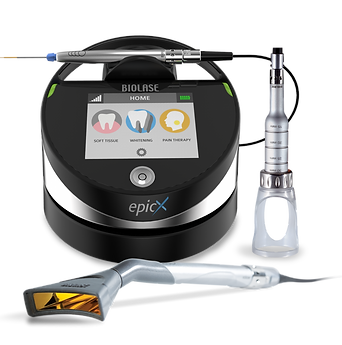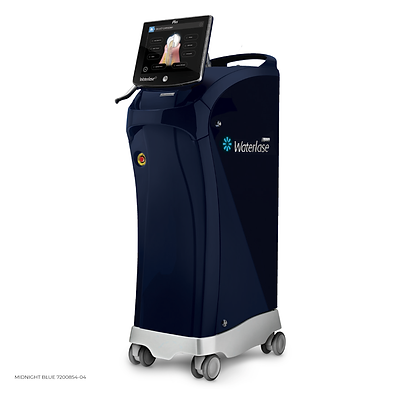Dentique Dental Surgery
徐牙科诊所
Klinik Pergigian Dentique

Saving Teeth Like No One Ever!
LASER-ASSISTED TREATMENT & SURGERY
Laser, an acronym for light amplification stimulated emission ray that was postulated by Albert Einstein is actually light that is not visible to human eyes. There are lasers of various wavelengths available in the market such as carbon dioxide laser, argon laser, ruby laser, alexandrite laser and many more. The ones that are used in dentistry are diode laser (soft tissue laser) and Er,Cr;YSGG laser (all tissue laser).
Diode laser (red and near infrared wavelength) works by targeting and destroying pigments. Therefore, it can only be used in soft tissue procedures. Studies has shown that the red and near infrared wavelength is the most effective in photobiomodulation. Er,Cr;YSGG (infrared wavelength) works by targeting and ablating water molecules and hydroxyapetite. Therefore, it can be used in both soft tissue and hard tissue procedures, thereby known as all tissue laser.
With the laser technology made available, it brings a paradigm shift in the field of dentistry. We no longer use scalpel, blade, and bur to perform surgeries. Instead, we use laser. It has been scientifically proven that laser surgery has faster healing, lesser pain and lesser swelling compared to traditional surgery due to minimally invasive properties and photobiomodulation effect of laser. Other than that, laser is very effective in killing bacteria, therefore it is now a golden rule to use laser for treatment such as root canal treatment and gum diseases. Laser can also be used to treat many conditions that traditional treatment cannot manage predictably, such as myofacial pain, temporomandibular joint disorder, trigeminal neuralgia, and fibromyalgia.

